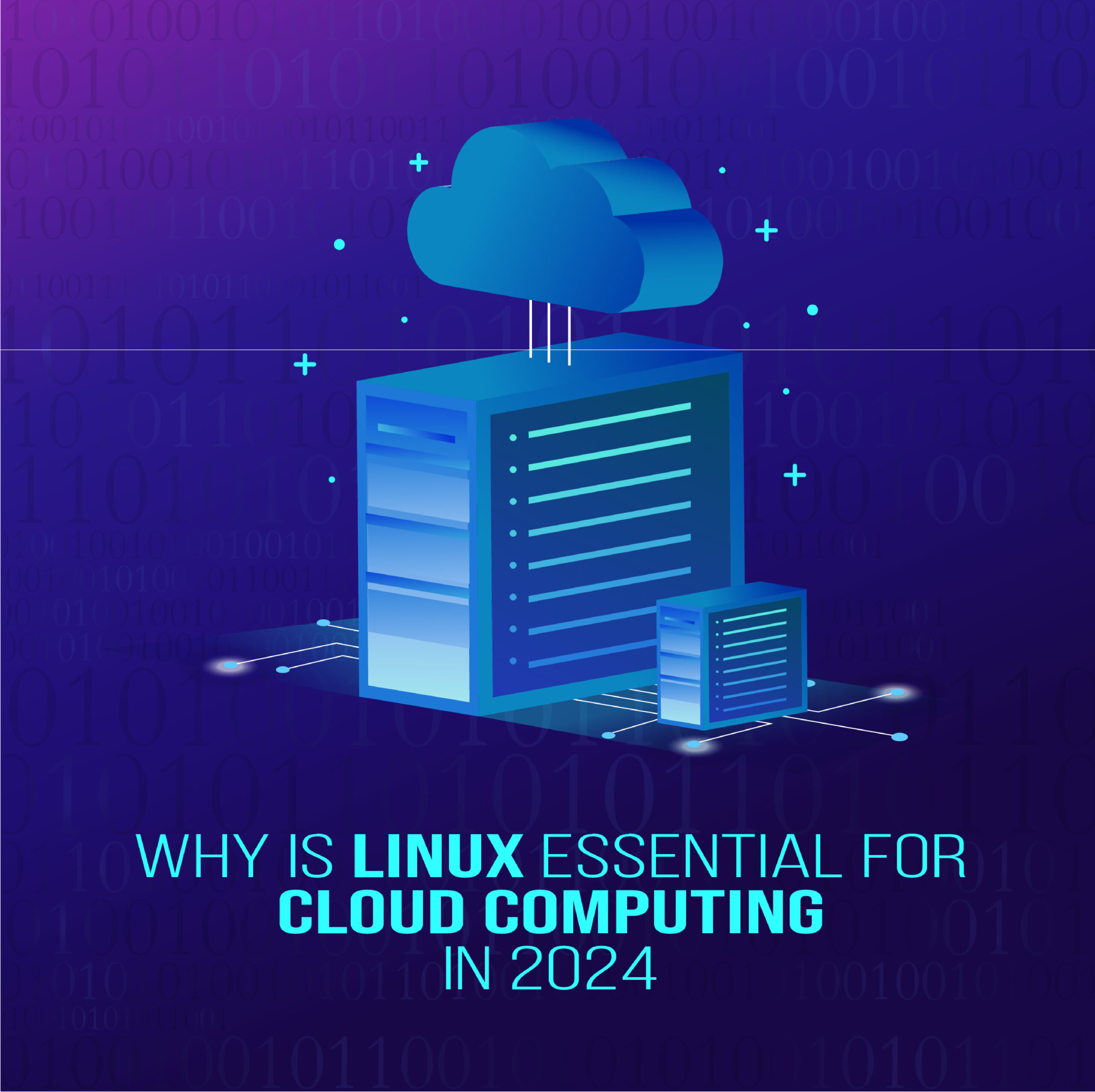As cloud computing continues to shape the future of technology, Linux has emerged as a cornerstone of this transformation. Its open-source nature, scalability, and adaptability have made it the operating system of choice for businesses and developers alike. In 2025, Linux for cloud computing will be a necessity for powering advanced technologies and driving innovation.
This article delves into the benefits of Linux in cloud environments, explores Linux-based cloud platforms, and highlights the importance of training for professionals looking to thrive in this field.
Executive Summary:
- Benefits of Linux in Cloud Computing: Linux’s flexibility, scalability, security, and cost-effectiveness make it a robust ecosystem for modern cloud computing solutions.
- Linux for Cloud Computing in 2025 & Beyond: Its lightweight and modular design as well as adaptability to cutting-edge technologies make it indispensable for future cloud innovations.
- Linux-based Cloud Platforms: Leading platforms like AWS, Google Cloud, and Microsoft Azure leverage Linux’s strengths to deliver scalable, secure, and efficient cloud services.
- Linux Essentials for Cloud Engineers: Mastering Linux commands, file systems, networking, and containerization tools is vital for cloud engineers to manage and optimize cloud infrastructures.
- The Future of Cloud Computing with Linux: Linux’s ability to support microservices, AI, and edge computing ensures its role as the foundation for future technology architectures.
The Benefits of Linux in Cloud Computing
Linux offers several key advantages that make it indispensable for cloud computing:
- Open-Source Architecture: Organizations can alter their environments depending on their preference as Linux is an open-source operating system. This flexibility allows them to solve specific problems and ensure maximum performance at minimum cost.
- Unmatched Scalability: The scalability of resources should not be an issue in the cloud or any other computing model. Linux-based systems support all sorts of workloads, from small to large enterprise-level applications.
- Robust Security Features: One of the great considerations that cloud computing has is security, and using Linux will benefit greatly from this aspect. SELinux replaces AppArmor as an in-built security feature, and this ensures that systems are always shielded against the newest threats.
- Cost-Effective Solutions: By eliminating licensing fees and reducing operational costs, Linux delivers significant savings for organizations deploying cloud solutions. This makes it suitable for use by both startups and established businesses – hence its popularity in the business world.
- Strong Ecosystem Support: Linux has a large number of utility tools, system distributions, and developers. This support facilitates the current technologies to make sure that it matches the cloud computing innovations.
Why Use Linux for Cloud Computing in 2025 & Beyond
New trends and developments in cloud computing are adopted by Linux, and hence, using Linux as the foundation of cloud computing can accelerate your products. Integrations with the most popular clouds such as AWS, Google Cloud and Microsoft Azure have established the OS as the top operating system for cloud solutions.
Linux is lightweight and modular in nature as well as supports containers, virtual machines, and serverless applications. The rise of edge computing and AI workloads in 2025 will further underscore the need for Linux-based computing systems.
Linux-Based Cloud Platforms
Many cloud platforms are built on Linux, offering tailored solutions for businesses:
- AWS: Associates Linux with cloud computing and makes available first-party optimized Amazon Linux AMIs.
- Google Cloud Platform (GCP): GCP provides Linux-based virtual machines for various workloads, ensuring high efficiency and reliability.
- Microsoft Azure: The strong support for Linux is provided where an array of choices, including Ubuntu and Red Hat, to match myriad clouds is available from Azure.
These platforms leverage Linux’s strengths to deliver scalable, secure, and efficient cloud services.
Linux Essentials for Cloud Engineers
For cloud engineers, understanding Linux is essential. Proficiency in Linux commands, file systems, and networking is crucial for managing cloud infrastructures. Additionally, familiarity with containerization tools like Docker and orchestration platforms like Kubernetes is indispensable for modern cloud deployments.
To stay competitive, cloud engineers must invest in Linux cloud computing training. Institutions like Techmindz offer specialized courses that combine Linux fundamentals with AWS cloud training, equipping professionals with the skills needed to succeed in the industry.
The Future of Cloud Computing with Linux
The ability to support microservices, serverless design, future, and/or AI-related applications effectively makes it more a part of the future of technology architecture. Organizations that deploy Linux-based cloud solutions achieve competitive advantage because the operating system is more flexible, secure and scalable.
The concepts of 5G-enabled edge computing and IoT also underline the importance of having solutions based on this operating system. By adopting Linux, organizations put themselves in a right place to compete in today’s ever advancing digital environment.
Fuel Your Career Growth with Techmindz Linux and AWS Training
At the present high level of development of cloud computing, people with experience in Linux and AWS are in demand in the job market. Techmindz’s Linux AWS training program allows learners and professionals to capitalize on this opportunity by educating them on the fundamentals of Linux on cloud and technical sophisticated AWS solutions.
This training offers practical sessions to let you gain and practice Linux-based cloud platforms. This is a great opportunity to start or enhance your career as a cloud engineer to stay competitive in the job market and land high-paying jobs.














0 Comments